Related Research Articles

Manic Street Preachers, also known simply as the Manics, are a Welsh rock band formed in Blackwood, Caerphilly, in 1986. The band consists of cousins James Dean Bradfield and Sean Moore, plus Nicky Wire. They form a key part of the 1990s Welsh Cool Cymru cultural movement.
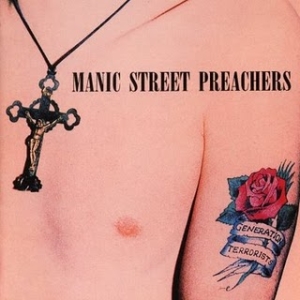
Generation Terrorists is the debut studio album by Welsh alternative rock band Manic Street Preachers. It was released on 10 February 1992 through record label Columbia.
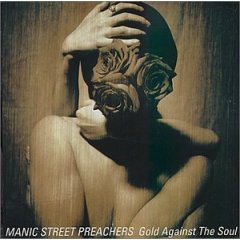
Gold Against the Soul is the second studio album by Welsh alternative rock band Manic Street Preachers. It was released on 21 June 1993 by record label Columbia.
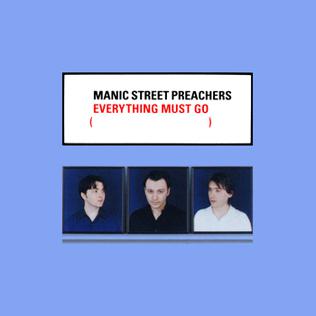
Everything Must Go is the fourth studio album by Welsh alternative rock band Manic Street Preachers. It was released on 20 May 1996, through Epic Records, and was the first record released by the band following the disappearance of lyricist and rhythm guitarist Richey Edwards.
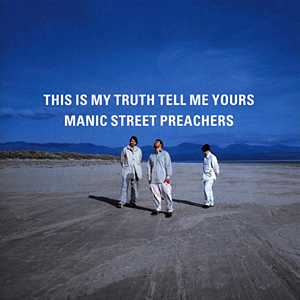
This Is My Truth Tell Me Yours is the fifth studio album by Welsh alternative rock band Manic Street Preachers. It was released on 14 September 1998 by record label Epic.

Forever Delayed is a greatest hits album and DVD by Welsh alternative rock band Manic Street Preachers, released in 2002 by record label Epic. The album included three singles which had never appeared on earlier albums, as well as two new songs, the single "There by the Grace of God" and "Door to the River".

Nicholas Allen Jones, known as Nicky Wire, is a Welsh musician and songwriter, best known as lyricist, bassist and secondary vocalist of the Welsh alternative rock band Manic Street Preachers.

Richard James Edwards, also known as Richey James or Richey Manic, was a Welsh musician who was the lyricist and rhythm guitarist of the alternative rock band Manic Street Preachers. He was known for his dark, politicised and intellectual songwriting which, combined with an enigmatic and eloquent character, has assured him cult status. He has been cited as a leading lyricist of his generation, leading the Cool Cymru movement.

"Kevin Carter" is a song by Manic Street Preachers, released as the third single from their album Everything Must Go in 1996. The song peaked at number nine on the UK Singles Chart.
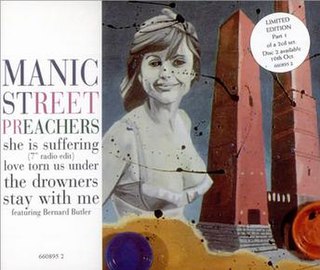
"She Is Suffering" is a song by Welsh alternative rock band Manic Street Preachers. It was released in October 1994 by record label Epic as the third and final single from the band's third studio album, The Holy Bible. It was their last single to feature Richey Edwards before his disappearance on 1 February 1995. The single reached number 25 on the UK Singles Chart on 15 October 1994.

"Love's Sweet Exile" is a song by Welsh alternative rock band Manic Street Preachers. It was released on 28 October 1991 by record label Columbia as the second single from their debut album, Generation Terrorists (1992). The B-side, "Repeat (UK)", appears on the same album.
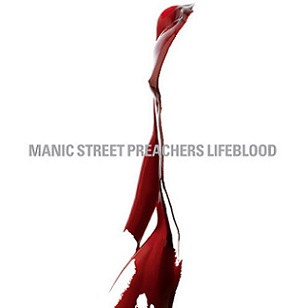
Lifeblood is the seventh studio album by Welsh alternative rock band Manic Street Preachers. Recorded in 2003, it was released on 1 November 2004 by record label Sony Music UK.

New Art Riot E.P. is an EP by Welsh alternative rock band Manic Street Preachers. Released on 25 June 1990 by the Damaged Goods record label, it was the band's first release to feature the four-piece line-up of James Dean Bradfield, Nicky Wire, Richey Edwards and Sean Moore.

"Faster" is a song by Welsh alternative rock band Manic Street Preachers. It was released in 1994 by record label Epic as the first single from the band's third studio album, The Holy Bible.
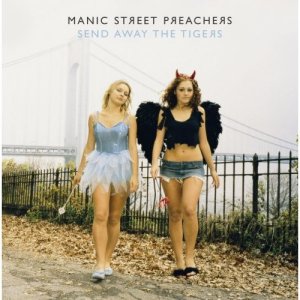
Send Away the Tigers is the eighth studio album by Welsh alternative rock band Manic Street Preachers, released on 7 May 2007 by record label Columbia. It reached number 2 on the UK Albums Chart.
"4st 7lb" is a song by Welsh alternative rock band, Manic Street Preachers, from the band's third album, The Holy Bible.
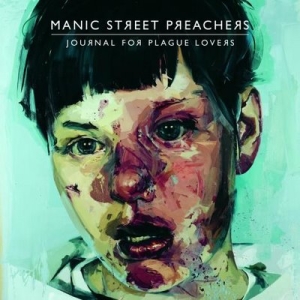
Journal for Plague Lovers is the ninth studio album by Welsh alternative rock band Manic Street Preachers, released on 18 May 2009 by record label Columbia. Recorded between October 2008 and February 2009 and produced by Steve Albini and Dave Eringa, it features exclusively posthumously published lyrics by Richey Edwards, who disappeared on 1 February 1995 and was presumed deceased in 2008. It is the only Manic Street Preachers album in which the lyrics for every song were written solely by Edwards.
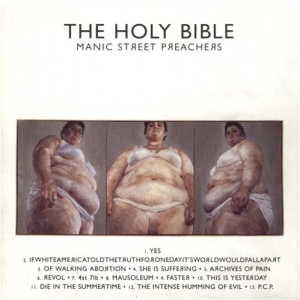
The Holy Bible is the third studio album by Welsh alternative rock band Manic Street Preachers. It was released on 30 August 1994 by record label Epic. While the album was being written and recorded, lyricist and rhythm guitarist Richey Edwards was struggling with severe depression, alcohol abuse, self-harm and anorexia nervosa, and its contents are considered by many sources to reflect his mental state. The songs focus on themes relating to politics and human suffering. The Holy Bible was the band's last album released before Edwards' disappearance on 1 February 1995.
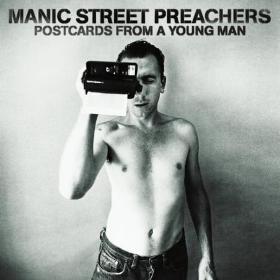
Postcards from a Young Man is the tenth studio album by Welsh alternative rock band Manic Street Preachers, released on 20 September 2010. The Manics began recording the album in October 2009 at their Faster Studio in Cardiff and finished in June 2010. The album was intended by the band as "one last shot at mass communication".

"Walk Me to the Bridge" is the first single released by the Manic Street Preachers from the album Futurology. The single was planned for release on 28 April 2014, but it was leaked earlier in the month.
References
- ↑ Lowe, Zane (25 March 2009). "Hottest Record - Manic Street Preachers - Peeled Apples". BBC . Retrieved 6 January 2014.
- 1 2 3 Mackay, Emily (13 May 2009). "Manic Street Preachers Interview Part One – 'In a Movie About Us, Christian Bale Would Play Richey". NME . Archived from the original on 19 January 2019. Retrieved 6 January 2014.
- ↑ "Manics Q&A #3 / Features / Music News from The Fly – The UK's Most Popular Music Magazine". The Fly . 1 June 2009. Archived from the original on 6 January 2014. Retrieved 6 January 2014.
- ↑ White, Lee. "Manic Street Preachers – Journal For Plague Lovers". This Is Fake DIY . Retrieved 6 January 2014.
- ↑ Diver, Mike (15 May 2009). "Manic Street Preachers - Journal For Plague Lovers". Clash . Retrieved 6 January 2014.
- ↑ Gourlay, Dom (16 December 2009). "Manic Street Preachers - Journal For Plague Lovers". Drowned in Sound. Archived from the original on 6 January 2014. Retrieved 6 January 2014.
- ↑ Smith, David (17 May 2009). "Manic Street Preachers: Journal for Plague Lovers". Popmatters . Retrieved 6 January 2014.
- ↑ Tangari, Joe (1 June 2009). "Manic Street Preachers - Journal For Plague Lovers". Pitchfork . Retrieved 6 January 2014.
- ↑ "Manic Street Preachers - Journal For Plague Lovers". Uncut . Retrieved 6 January 2014.
- ↑ Garrett, Jonathan (30 March 2009). "Manic Street Preachers - "Peeled Apples"". Pitchfork . Retrieved 6 January 2014.
- 1 2 Poladian, Charles (22 May 2009). "Manic Street Preachers get a little help from their friends, aka they made a remix album!". Consequence of Sound . Retrieved 6 January 2014.
- ↑ "Manic Street Preachers: Journal For Plague Lovers remixed!". Uncut . Retrieved 6 January 2014.